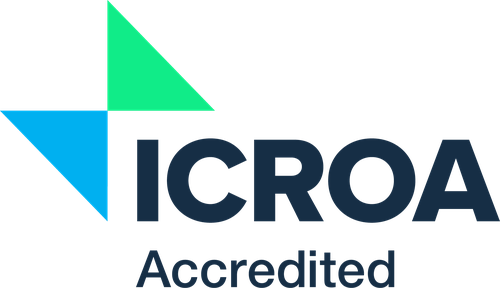Chris Duck, Claims and Assessment Director at Climate Impact Partners, delves into the UK Government's Voluntary Carbon and Nature Market consultation.
The voluntary carbon market (VCM) has been on a remarkable journey from a niche concept to a pivotal climate action tool, now essential for countries and corporates striving for net-zero. The early days of the VCM, while focused on pioneering project types and mainstreaming voluntary climate action, established key quality and integrity guidelines, delivering impactful projects.
Quality and integrity have always been of great importance to the VCM, and as one of the founding members of ICROA since 2008, we have been advocating for both for over 15 years. In the past few years we have seen an even more significant acceleration of this focus, following increased interest in the market.
In its recent consultation, the UK Government set out what it sees as high quality in today’s market. This clarity is paramount, building upon the considerable thought leadership and integrity initiatives that have shaped both the supply and demand sides of the market since its inception. Enhanced due diligence, evolving methodologies, ratings agencies, and advanced MRV tools have all contributed to this progress. The government's move to synthesize this thinking into clear principles is a welcome development.
Equipping corporates with the confidence to act decisively within the VCM is critical to unlocking its full potential. We are a decade past the Paris Agreement, and progress hasn't matched the initial ambition. Last year's record-breaking temperatures, exceeding the 1.5°C threshold, serve as a stark reminder. Current national pledges fall considerably short of what's needed. The latter half of this decade is a make-or-break moment for a 1.5°C world. We urgently need to slash emissions by 42% by 2030 and 57% by 2035, yet current trajectories point towards a concerning 3% increase. The private sector's role in bridging this gap is critical.
The UK Government's Six Pillars of High-Quality VCMs
The six principles outlined by the government resonate strongly with the best practices already adopted by many within the market:
- Use credits in addition to ambitious actions to reduce emissions within the value chain.
- Use high integrity credits that meet an established criteria and deliver environmental outcomes claimed
- Measure and disclose the planned use of credits as part of sustainability reporting
- Plan ahead and integrate credit use into transition planning and net zero strategies, over ad hoc purchases. Watch our Buy Smart: Avoid the Carbon Credit Crunch webinar to support your carbon credit strategy
- Make accurate green claims using appropriate terminology.
- Co-operate with others to support the growth of high integrity markets.
Methodology and Project Quality
The government's endorsement of the Integrity Council for the Voluntary Carbon Market’s (ICVCM’s) Core Carbon Principle (CCP) labelled credits is a significant step for the framework. With 27 million CCP-labelled credits currently available and hundreds of millions more in the pipeline following the approval of key methodologies (including clean cooking, afforestation, and REDD+), this direction of travel needs acceleration. We need to see more CCP-labelled credits reaching the market swiftly, further methodology reviews prioritized and clear pathways for projects transitioning to CCP approved methodologies, ensuring finance continues to flow to them.
Acknowledging the ICVCM's focus on methodology-level assurance, the government highlights the role of ratings agencies in providing project-level confidence.
This is where due diligence processes come into play, looking at a project by project granularity to assess the impact and effectiveness of projects on the ground. For us this means only working with projects that meet our quality criteria.
Tackling the Scope 3 Challenge
A key part of the strategy revolves around the adoption of the Voluntary Carbon Market Initiative’s (VCMI) Claims Code of Practice. The government proposes to endorse this as a key standard for guiding how companies can credibly use voluntary carbon credits as part of their climate commitments and how they communicate this use.
The government has specifically highlighted the VCMI’s work in developing guidance for companies to address their Scope 3 emissions, including the beta Scope 3 Claim and the upcoming Scope 3 Action Code of Practice. They see this as crucial for unlocking action in this challenging area. Providing a credible pathway for companies facing Scope 3 challenges to use high-quality carbon credits as a complementary tool to accelerate climate action while they intensify their efforts to reduce emissions within their value chain.
Climate Impact Partners is a signatory on the VCMI's Scope 3 Action Challenge, a multi-stakeholder initiative designed to galvanize significant progress on corporate Scope 3 emissions reduction, acknowledging the critical role of these often-challenging emissions in achieving global net-zero targets. Sign up here for VCMI’s webinar, on 30 April, to learn more about the Scope 3 Action Code of Practice.
Looking Ahead
This consultation, open until July 10, 2025, will be instrumental in shaping the future of the UK's voluntary carbon market. Climate Impact Partners will actively participate, providing our feedback and recommendations to ensure the development of a robust and impactful framework. This is a pivotal moment, and the UK Government's commitment to defining and upholding "high quality" could serve as a blueprint for fostering a truly effective and trustworthy voluntary carbon market globally.
Help us feedback to the government by taking part in a quick poll to tell us what you need to increase your action through the voluntary carbon market.
Help us feedback to the UK Government
Take part in our quick poll to tell us what you need to increase your action through the voluntary carbon market

In its recent consultation, the UK Government set out what it sees as high quality in today’s market. This clarity is paramount, building upon the considerable thought leadership and integrity initiatives that have shaped both the supply and demand sides of the market since its inception.










